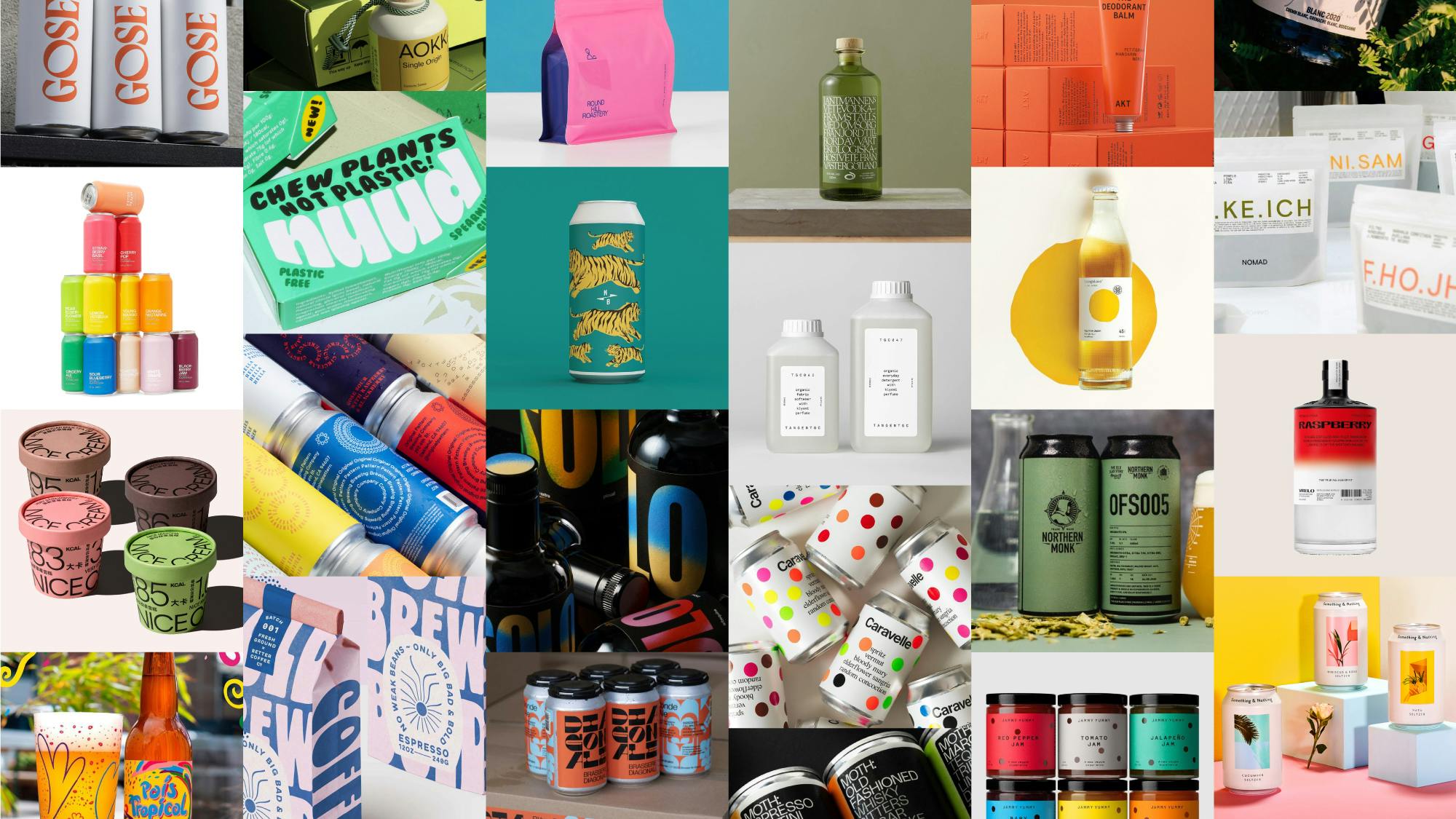

Adjusting and Adapting
New Nomad, Craig, on adjusting to life abroad and adapting to different sized design studios.
Written by Craig Berry, Designer & Writer at Nomad.
Five years on paper looks like a long time... and that’s because it is, but as the saying goes, ‘time flies when you’re having fun.
That was the sentiment that I felt for about four years living abroad in Amsterdam after relocating there pretty much right after finishing university at the eager age of 23. It was new, exciting and amazingly fun both professionally in work and personally outside of work. I moved there after being offered an internship at a big design agency which developed into my first ‘proper’ job and after a few years, I moved to a bigger advertising agency as well as doing some freelance design and writing along the way.
Over these years I worked with some great people on some great projects and had some amazing, formative experiences that have definitely shaped who I am today; I was loving almost every minute of it. But for my fifth year abroad, time wasn’t flying; time was standing still.
Living abroad is great, until it isn’t.
The small things that you thought you wouldn’t miss when you move away from home become things you long for. I’m specifically talking about the mundane, the super personal and the totally intangible things that are different for each person.
For me, right away I was missing being able to go to Tesco and just pick up the regular things I had known to love in the UK; really, really boring things like a meal deal, a frozen pizza or a certain type of cheese. I also slowly began to miss overhearing and understanding casual English conversation on trains or in bars; I never thought I would long to hear the nonsense people chat to each other, but it’s oddly comforting.
The big things you know you would miss only become more and more impossible to ignore or to not think about. These are sacrifices you knowingly and willingly have to make when moving abroad (especially alone) but at some point, all of these small sacrifices became too much for me. Of course, the pandemic added a layer of negativity for this period of time; but this was only a catalyst for feelings felt prior.
So after five years abroad, I decided it was time to pack my bags, say my goodbyes, leave Amsterdam and relocate back to the UK. I left without a new job lined up, meaning that for the first time since finishing uni, I found myself unemployed, which was scary and liberating yet obviously unsustainable.
My previous two jobs in Amsterdam, where I was an intern, junior and mid-weight designer, were jobs that you could say came about because of fortune, knowing people and being in the right place at the right time. It wasn’t that I was desperate to work at either of these agencies but more that I wanted to get a start in my career so I was willing to take these opportunities.
But upon leaving Amsterdam, I had the fallback of having several years of experience, a great portfolio of work, relatively good finance and the support of friends and family which meant I was able to take my time, ‘shop around’ and find the right place to live and work, for me.
I ultimately chose to move to London (not a hard decision really) for several reasons, the first being that my (now) wife has lived in London for over six years in a beautiful house and we wanted to start living together. Secondly, London is also very comparable to Amsterdam in terms of the creative industry, lifestyle and culture. Thirdly, it’s a place that isn’t new for me, having flown back and forth countless times due to its close proximity and (relatively) cheap flights. And finally, although there are amazing studios and agencies outside of the capital, London has some of the best in the country.
London was an obvious choice but it was equally an informed decision, I wasn’t doing this on a whim.
To be honest, I had regularly toyed with the idea of moving to London during my whole time abroad, to which people would always tell me ‘you’ll easily get a job there’ and ‘there’s loads of studios that you’d fit right into’, which was very comforting but when I actually made the decision to jump and actually do it, it was daunting. I had a hit-list of studios I would’ve loved to have worked at, but no real way in.
As such I contacted the London-based recruitment agency Represent, who did an amazing job for me by putting me and my work in front of lots of quality studios. This gave me priceless opportunities to present my work (sometimes talking about projects for the first time), get to grips with how interviews go (my Amsterdam jobs did not have typical interviews) and learn more about how these studios are ran (some better than others seemingly). It was also interesting to see the real people behind some of these studios and their work.
Working with Represent made me feel like I had a VIP pass to talk to creative directors about myself and my work, but also to have genuine conversations.
As a result of this, I ended up with several offers and opportunities but ultimately accepted a position at Nomad due in part to their work, clients, team and communication but also for a change of scenery and pace. So this is where I am now, relocating from a big agency to a small studio; from 100+ people to about 15 people.
During the interviews I had, the same question would crop up almost every time when talking with smaller studios: ‘how do you feel about going from a big place to a small place, do you think you’ll be able to manage that?/can you handle that change?’. To which, I actually wasn’t sure myself.
I was thinking that there are good things and bad things about both and it’s purely personal preference. But these are my experiences: working at a big agency obviously means more people and therefore more people to learn from; especially people who have more obscure skill-sets or come from different places and have their own experiences which they can share. A bigger agency is also most of the time more commercial and/or corporate and it’s clearer to understand the agency as a business and for creative output.
Some disadvantages about a big agency are that for people on the bottom of the hierarchical pyramid, it’s easy to get a bit lost amongst the number of people. It’s also that same hierarchical pyramid that can tip a place to being more about making money than creating great creative work, this often results in being given less time to work on a project and losing time to really craft and make informed decisions – it’s great to work fast sometimes and be intuitive but sometimes the best things take time. Equally, big agencies are often ruled by awards, putting a lot of pressure on making it an award winning project by having this almost be the briefing, which I feel isn’t helpful or the right attitude to have at the start of a project.
Clients at a bigger agency are usually more commercial/corporate as well, which is good because it allows you to work for some of the biggest name brands in the world and the budget that comes with these. But sometimes these brands are quite prescriptive, aren’t willing to change or have their own hierarchical pyramid and politics that the agency ultimately becomes a part of.
With both there is also the element of ‘transferable skills’; these are fundamental skills that can be learnt in a big agency or a small studio that are relevant to each other, such as: how to use the tools, working in teams and collaborating, creative thinking and thought processes, working with accounts, preparing and presenting work etc. These things don’t really change between big and small places; it’s just a sense of scale and how different places choose to operate.
There are obvious differences though, already after only three months at Nomad, that I’ve noticed and experienced. The first is the way that teams are managed, instead of having numerous levels of people to get past or hoops to jump through, because the teams are smaller, people can deal directly with each other to make decisions.
Being a smaller group of people does have a sense of being closer together.
Everyone knows everyone and can work with each other, compared to different teams only working on their things. The amount of work taken on is also smaller, only in scale, but this is relative to the job. It’s also clear who does what though, and you don’t need to ask ‘the right person’ to get an answer for something.
The other difference is that there are lots of designers in a design studio and if a copywriter, art director, producer, PR manager etc. is needed, then it usually calls for a freelancer; whereas, in a larger place, these people already work there and are an integral part of each team. However this only cuts out a small line of communication, and working with freelancers is a great way to meet new people.
Ultimately, it’s down to the person and their preferences of what they’re looking for with a workplace. I think that my experience has been valuable in that I have been at big places and now small places so it’s useful to have seen two sides of the coin and to have these ‘transferable’ skills from both now.
In terms of moving back to the UK from the Netherlands, moving back to design from advertising and moving from a big agency to a small studio; these are all ongoing adjustments and adaptations to my professional and personal life but they’re all decisions that I’m positive and excited about. I’m also happy to put my time in Amsterdam behind me; it’s not that I don’t look back fondly on these times but more, I want to look forward and onwards to the future which at the moment is London and Nomad.

